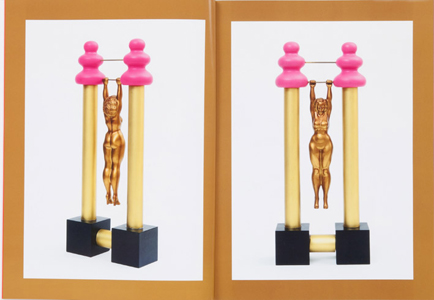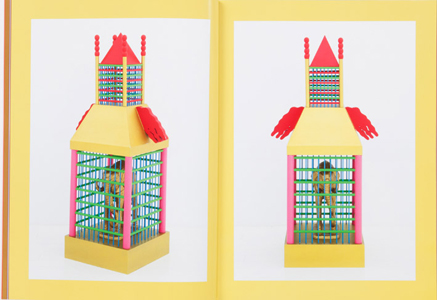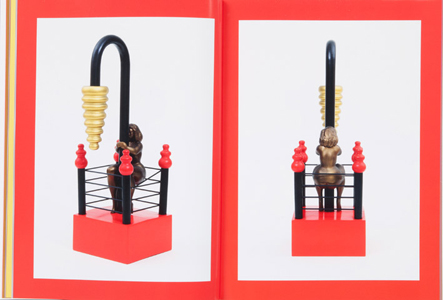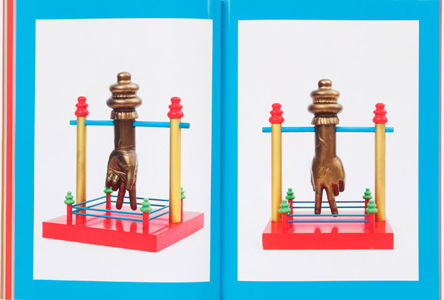A group of recently discovered sculptural works created by the Japanese pop-art pioneer Keiichi Tanaami in the 1980s.
The wood-cut sculptures recall children's toys and represent an unexpected break from the artist's usual style. They form an obscure world of objects reminiscent of the frozen figures from his early films that connect the aesthetic of American advertisements and fragmented memories of World War II. Today these unusual sculptures call to mind video game creatures, fantastical architectural models and post-modern design, but they also retain a connection to traditional Japanese handicrafts.
Awarded: “Most Beautiful Swiss Books 2013”.
Keiichi Tanaami (1936-2024) is looked upon as the forerunner of
Japanese Pop Art and is one of the country's most influential artists. Born in Tokyo as the son of a textile wholesaler, he was nine years old when he experienced the bombing of Tokyo towards the end of World
War II. He studied at the Musahino Art University, visited
Andy Warhol in New York in 1969, worked with both
Robert Rauschenberg and art critic
Michel Tapié during their travels to Japan, and designed record covers for Jefferson Airplane and The Monkees.
He maintained a successful career as an illustrator and a graphic designer throughout the 1960s and early '70s, and was appointed as the first artistic director of the Japanese edition of
Playboy magazine in 1975. With an infinite artistic appetite, Tanaami continued to work across all boundaries, embracing painting, sculpture, performance and film, as well as a professor on the Faculty of Information Design at the Kyoto University of Art and Design in Japan.





